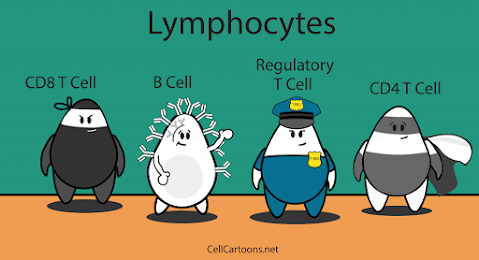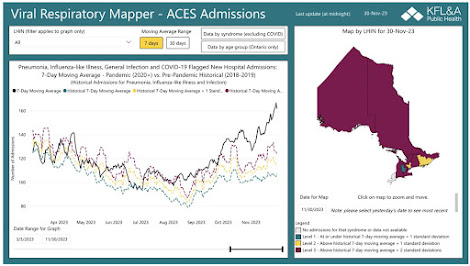For people, like Maria Van Kerkhove of the WHO, who think immunity debt or the immunity gap or whatever new name they give for it is the problem, this one's for you!
Dr. Lisa Iannattone posted an excellent thread debunking the notion that keeping us all at home for a few months a few years ago has robbed us of ability to fight off illness. This is entirely from her thread:
We’re in our 3rd post-lockdown viral respiratory season and admissions for viral respratory illness + pneumonia are 6 standard deviations above the historical average. I do not understand how so many reasonable people haven’t figured out that the “immunity debt” scapegoat is disinformation.
It’s not the lockdowns; it’s the covid. Covid damages immune systems. Catching covid makes people more susceptible to catching other infections. Immunity theft, not immunity debt. A thread of evidence:
This study found that the risk of RSV infection needing medical attention was 40% higher in kids that had covid vs those that didn’t. Both in 2021 and 2022. Yes they checked twice. This study shows that the terrible 2022 RSV epidemic was not as simple as a “catch up” year. RSV was already back in 2021. The 2022 surge was driven by more severe cases. What happened between 2021 and 2022? Mass infection of children with omicron. And subsequent immune damage.
“the large buildup of COVID19-infected children and the potential long-term adverse effects of COVID-19 on the immune and respiratory systems may have contributed to the 2022 winter surge of severe RSV diseases that was not seen in 2021.”
2021: immunity debt
2022: immunity theft
Now let’s talk about cascading effects. This is a really interesting study that highlights the role of RSV as a cofactor in invasive pneumococcal disease. There is no pneumococcal immunity debt because people carry it around asymptomatically so it’s always around. And here they showed that while invasive disease dropped during the lockdowns, pneumococcal carriage rates were not significantly reduced. But when RSV and influenza came back, so did invasive pneumococcal disease. So S. pneumoniae piggybacks on RSV/influenza to infect children. So the cascading effect here is that covid increases susceptibility to RSV which increases susceptibility to this invasive infection. I’m going to spend an extra minute reiterating that immunity debt to S pneumonia was formally disproved in this study.
“This decrease was initially believed to be associated with the ability of nonpharmaceutical interventions to reduce transmission of S pneumoniae, among other pathogens.(6) However, the fact that pneumococcal nasopharyngeal carriage remained essentially unchanged, including in rates and density, strongly suggests no significant reduction in pneumococcal transmission in the community.”
You see that reference #6? Let’s click it. Ah yes, the UKHSA notes a surge of invasive pneumococcal disease in kids in 2021 and immediately defaults to blaming the lockdowns and immunity debt even though that makes no everloving sense for S. pneumoniae.
More covid = more RSV = more invasive pneumococcal infections.
Moving on. This study found more cases of shingles (a virus that can reactivate when your immune system is down) across all ages in those that had covid. Worse, the risk of severe shingles (disseminated zoster) was 2.8x higher for the post covid group.You see what the authors do here? They go over the already known biologic effects of covid (lower T cell counts persisting after recovery from the acute phase) and do an easy little 1+1=2. The math is mathing. No need to pretend this is a big ✨mystery✨.
This right here is the real immunity gap: the gap between how well people’s immune systems performed before covid vs after. Covid-naive immune systems outperform covid-infected ones. Even after vaccination.
Another cascading effect here is strokes. It’s already well established that covid infections significantly increase your risk of stroke for months. The shingles virus is vasculopathic and also increases your risk of stroke post infection. Strep infections are surging yet again. What does the data say? Oh, it says it’s covid.
“The hazard ratio for streptococcal tonsillitis was elevated in SARS2 positive patients from 4 to 8 months after diagnosis, peaking at 6 months (hazard ratio 1.27).”
We’ve known covid increases your risk of bacterial infections for a long time. Long before the immunity debt fairy tale went mainstream. In this 2021 study, the 6 month hazard ratio of bacterial infections post covid was 1.43 (supplementary table 5).
I’m sure by now you’ve seen multiple headlines about the rise in tuberculosis. Similar to shingles, TB gets reactivated when your immune system is down. If covid damages your immune system, then if someone were to study what happens after covid, they’d find more TB right? Someone did study it. They found a 7x increased incidence of tuberculosis post-covid pneumonia and a 3.85x increased risk of TB post-symptomatic covid without pneumonia. This graph is pretty telling. It’s not the lockdowns. It’s the covid.
There’s that immunity gap again. The gap in outcomes between covid-damaged immune systems and covid-naive immune systems. The covid-naive once again fare better. Huh.
“Additionally, a study in China reported that 73.6% of patients with pneumonia could recover their T-cell numbers within approximately 30 days, whereas the remaining 26.4% had prolonged T-cell depletion. Decreased cellular immune response due to T-cell depletion could mediate the increased risk of getting active TB. These findings could explain why patients with COVID-19 pneumonia may be at increased risk of subsequent PTB even if their COVID-19 symptoms are cured.”
It’s more than just associations. There’s a mountain of research on the mechanisms that explain the increased susceptibility to other infections after covid. So. much. research. I’ll wrap up this thread with a quick, very partial tour of publications on immune system damage:
Covid infections damage the CD8 T cell response. 2 NIH studies here and here. Naive T cells missing and higher markers of T cell exhaustion post covid. This one found that the immune dysfunction (including lack of naive T and B cells) did not resolve after 8 months (study done on patients that developed LC after mild/moderate infections). Long lasting reduction in number and function of dendritic cells here and here. Covid directly infects monocytes. There are so. many. papers. on this. Here’s a thread that goes through several more studies.
It’s not the lockdowns. It’s the covid. And honestly any expert that’s talking about the surges in infections we’re seeing without saying anything about covid immune damage in December 2023, with all this published data, is either woefully uninformed or outright dishonest.






No comments:
Post a Comment